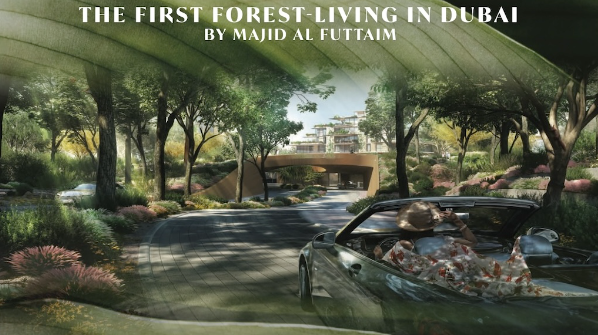Dubai Property Developers Embrace Sustainability
Dubai’s real estate market is undergoing a significant transformation as more and more developers increasingly focus on sustainability. This shift is driven by both environmental awareness and regulatory requirements, aiming to align with initiatives like the UAE Net Zero 2050 and the Dubai 2040 Urban Master Plan. These plans set ambitious goals for reducing carbon emissions and enhancing energy efficiency in the construction sector.
The Push for Sustainable Development
Developers in Dubai are adopting a range of sustainable practices, from energy-efficient building designs to the integration of renewable energy sources. The city, currently ranked third globally for LEED-certified projects, is at the forefront of this movement. Emaar Properties, a leading developer not just in Dubai but globally, is a prime example of this commitment.
Their projects often feature advanced technologies and sustainable construction methods that minimize environmental impact. For instance, residential buildings are designed to maximize natural light, use thicker concrete slabs for better insulation, and incorporate smart technologies and energy-efficient appliances.
Ghaf Woods: A Model of Sustainable Living
One standout project highlighting this trend is Ghaf Woods by Majid Al Futtaim, Dubai’s first “forest living” community. This innovative development emphasizes sustainability and nature, offering residents a unique lifestyle within a forest ecosystem. The community is designed to host over 20 native bird species and maintain more trees than residents, creating a cooler outdoor environment by up to 5°C compared to neighbouring areas. Ghaf Woods represents a significant step towards creating eco-friendly living spaces that blend seamlessly with the natural environment.
Benefits of Sustainable Real Estate
Sustainable buildings in Dubai are not only beneficial for the environment but also offer economic advantages. According to recent studies, properties with higher levels of green certification can command premiums of five to ten percent higher than their non-certified counterparts. This makes sustainable developments a smart investment choice, as they are likely to appreciate in value over time.
A great example of this in practice is the recently announced Ghaf Woods project, which has seen unprecedented interest from buyers and investors due to its eco-friendly theme. In addition, the UAE aims to achieve 40% energy efficiency in the construction sector and reduce emissions by 56% from 2019 levels by 2030. These targets further reinforce the importance of sustainable practices in the real estate industry.
Technological Integration
The adoption of smart home technologies and the use of renewable energy sources like solar panels are becoming more common in new developments. These technologies not only improve energy efficiency but also enhance the overall living experience by providing greater convenience and security for residents. Developers are also exploring the use of AI in property management to streamline operations and improve customer service.
Community and Economic Impact
Sustainable developments like Ghaf Woods are designed with community engagement in mind, promoting a healthier and more connected lifestyle. By creating green spaces and incorporating eco-friendly features, developers are contributing to the overall well-being of residents. Additionally, the growth of the sustainable real estate sector is positively impacting Dubai’s economy, generating employment and fostering innovation in construction practices.
Future Prospects
As Dubai continues to evolve, the emphasis on sustainability is expected to grow. New projects will likely incorporate even more advanced technologies and sustainable features, setting new benchmarks for eco-friendly living. The expansion of Al Maktoum Airport and other infrastructural developments will further enhance the strategic importance of sustainable communities like Emaar South. The popularity of existing eco-friendly projects will also encourage more developers to jump on board and benefit from the interest such projects receive.
In conclusion, the focus on sustainability by Dubai’s property developers is reshaping the real estate landscape. It’s doing this in many ways but primarily by offering both environmental and economic benefits.
Projects like Ghaf Woods by Majid Al Futtaim exemplify this shift, demonstrating how innovative design and sustainable practices can create desirable living environments. As the city progresses towards its ambitious sustainability goals such as the UAE Net Zero 2050, the real estate sector will play a crucial role in achieving these objectives and ensuring a greener future for Dubai and all of its residents.
